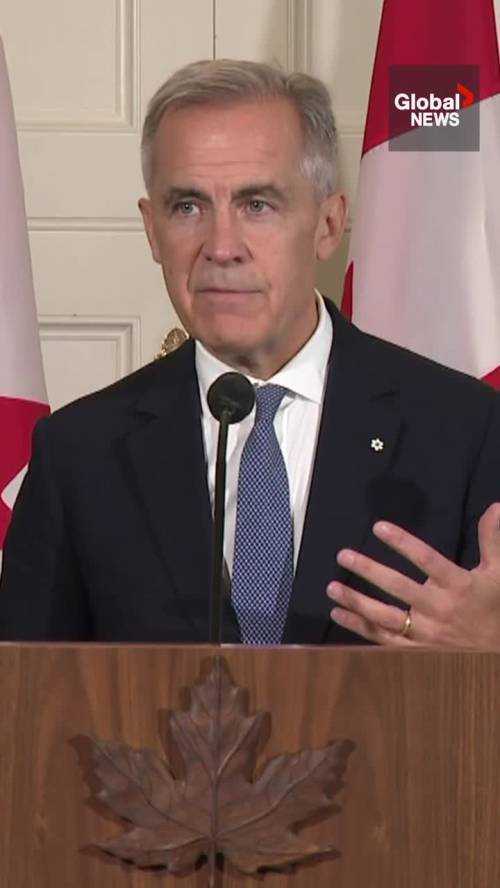In a striking clarification that cuts through swirling speculation, Liberal leadership hopeful Mark Carney firmly stated he has no immediate plans to implement a digital ID system in Canada, despite recent controversial policy developments across the Atlantic.
“I don’t have current plans for digital ID,” Carney declared during a recent media appearance, responding directly to questions about whether he would consider replicating elements of the United Kingdom’s contentious new immigration framework.
The statement comes amid heightened public sensitivity surrounding digital identification systems and their potential implications for privacy and civil liberties. The former Bank of Canada and Bank of England governor, who has positioned himself as a potential future Liberal leader, appeared intent on distancing himself from the UK’s approach, which has generated significant debate about government surveillance and data collection.
Political analysts suggest Carney’s cautious stance reflects the complex political landscape in Canada, where discussions about digital identification have frequently ignited passionate responses across the political spectrum. Recent polling data indicates Canadians remain deeply divided on expanded digital governance systems, with concerns about privacy protection consistently ranking as a top priority.
“Digital identification systems present a policy paradox for Canadian politicians,” explains Dr. Miranda Chen, technology policy researcher at the University of Toronto. “While they offer potential administrative efficiencies, they also trigger legitimate concerns about government overreach and data security that can’t be easily dismissed.”
The clarification emerges as Carney continues to carefully craft his political identity, balancing his established economic expertise with positions on social and technological policy issues that will define his appeal to Canadian voters.
Economic observers note that Carney’s background makes him particularly attuned to both the benefits and risks of expanded digital systems. During his tenure at the Bank of England, he witnessed firsthand the UK’s incremental moves toward greater digital integration in its financial and immigration systems.
“Carney’s statement should be understood within the broader context of his evolving platform,” says political strategist James Worthington. “He’s signaling awareness of privacy concerns while keeping options open for future technological adaptations that might benefit Canada’s administrative systems.”
The digital ID question represents just one of many policy areas where Carney will need to establish clear positions as speculation about his political aspirations continues to intensify in Canadian political circles.
As this debate unfolds against the backdrop of rapidly evolving digital technologies, Canadians must ask themselves: What balance between technological efficiency and personal privacy rights best serves our democratic values, and who do we trust to navigate these increasingly complex policy waters?











